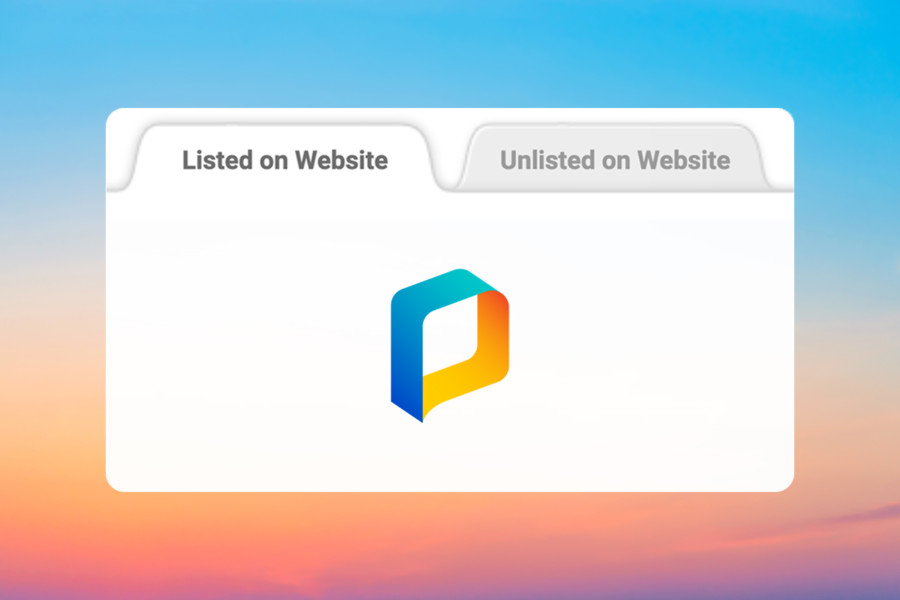Share
Google Images Now Displays Copyright Info
Protecting images from online theft is a major concern for many photographers. Images can be stolen, misappropriated, weaponized, and more. And whi...
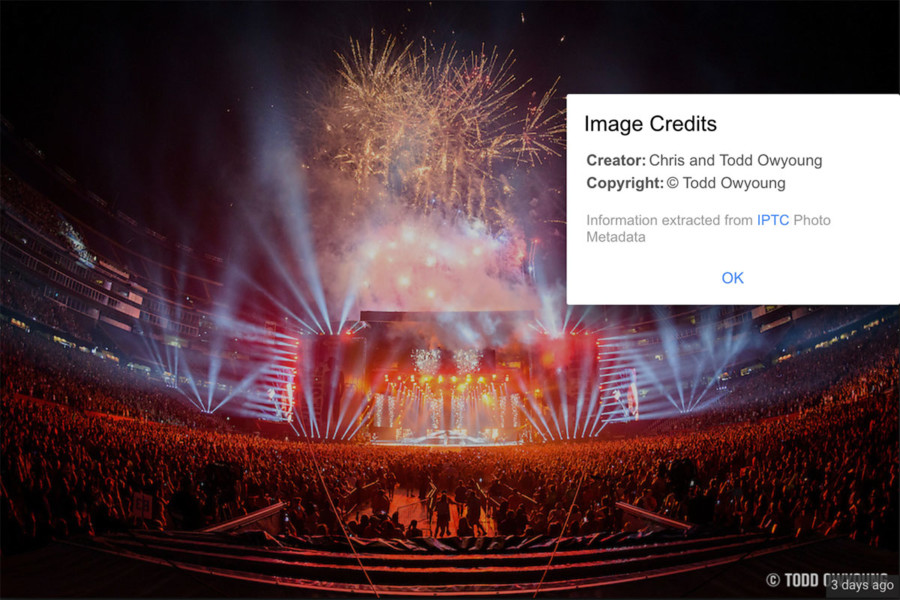
Protecting images from online theft is a major concern for many photographers. Images can be stolen, misappropriated, weaponized, and more. And while much of this activity is spawned by bad actors, many legitimate image licensees are thwarted because they can’t find information about an image creator or copyright holder. “Orphaning” occurs, in part, because many online services strip metadata (e.g. Facebook) or simply fail to read the embedded IPTC metadata.
Part of the logic for stripping or ignoring is practical. Metadata can easily exceed the size of a rescaled image, and because page load times are so crucial to audience retention, online services try to slim down images as much as possible by stripping metadata and serving up more efficient image formats like WebP.
Ingesting an image to read its metadata is also compute-intensive (at least relative to not ingesting it at all). Imagine inviting 100 people to a party, and having them all respond via Microsoft Word instead of by email or an
Thankfully things have changed.
In late September 2018, Google announced that it had been working with two photo industry consortiums, CEPIC and IPTC, to integrate some image ownership-related metadata into search results.
Here’s how it works.
Images containing IPTC Creator, Credit, or Copyright info (all IPTC info is easily added using virtually any image editor from Photoshop to Apple Preview) will now offer an “Image Credit” link when viewing Google Images search results. Clicking the link will reveal a pop-up window containing the associated metadata.
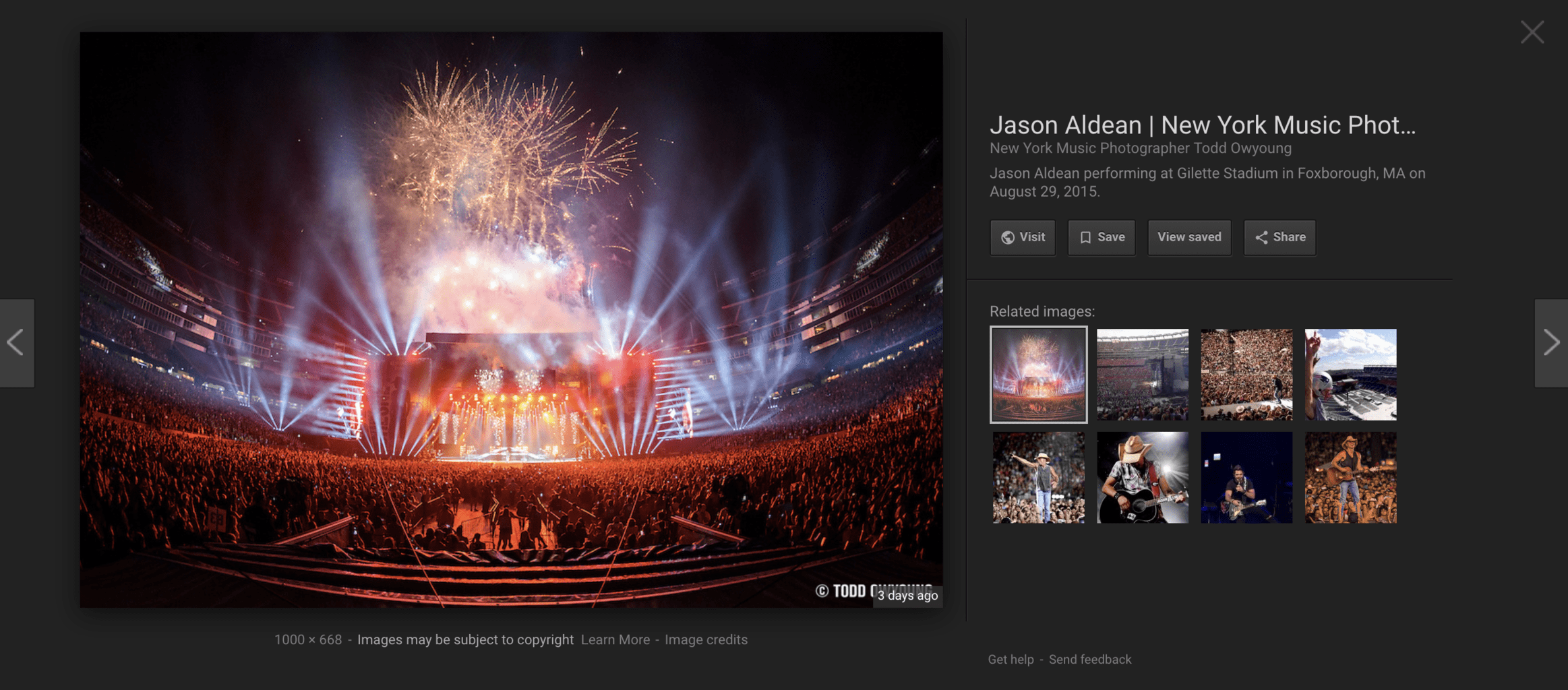
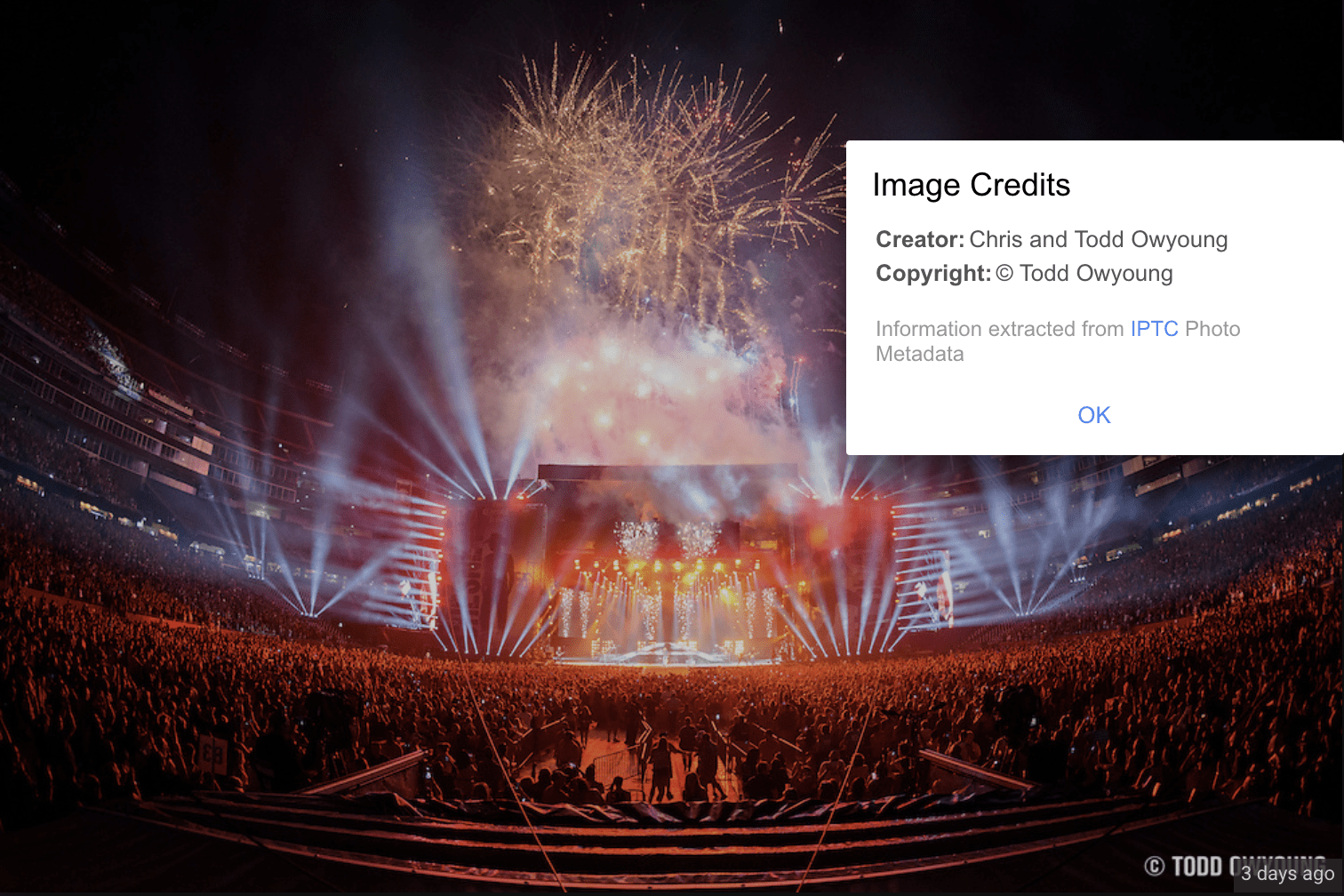
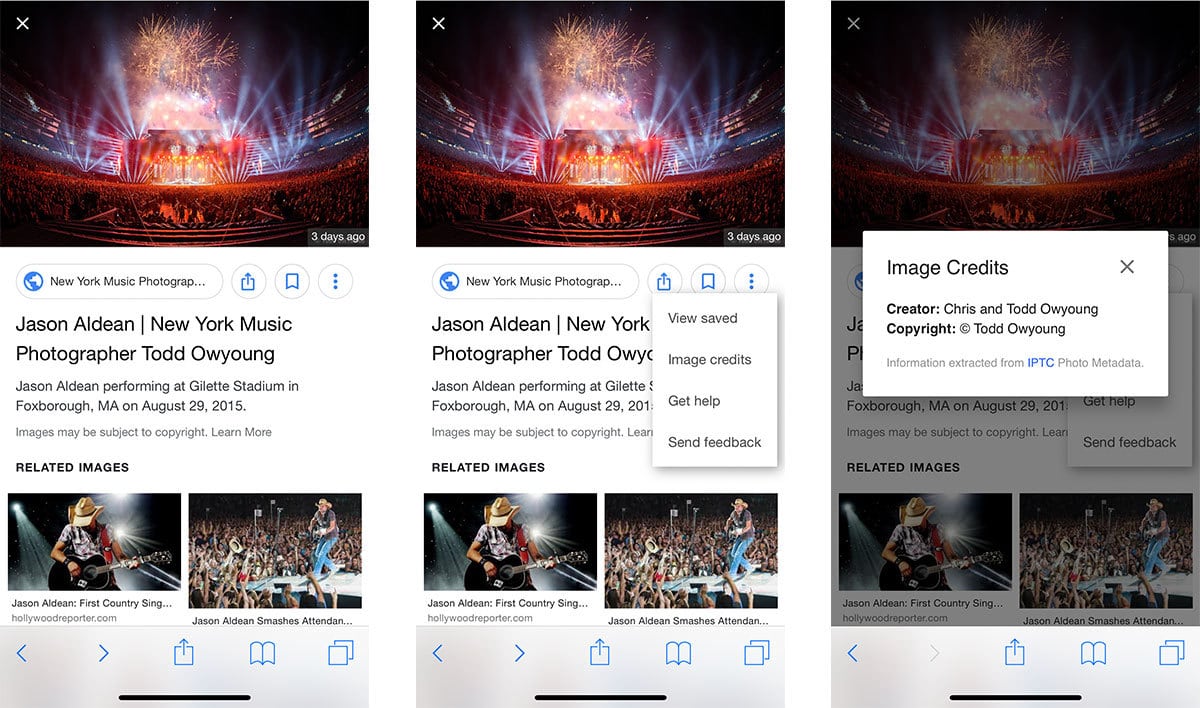
Previously, PhotoShelter only included IPTC Copyright in screen resolution images (your full res and client-download images contained the full IPTC info). But with Google’s update, we’re also including IPTC Creator and Credit. Google has already begun to extract this data, so there’s nothing you need to do. Those images will show up with this additional information.
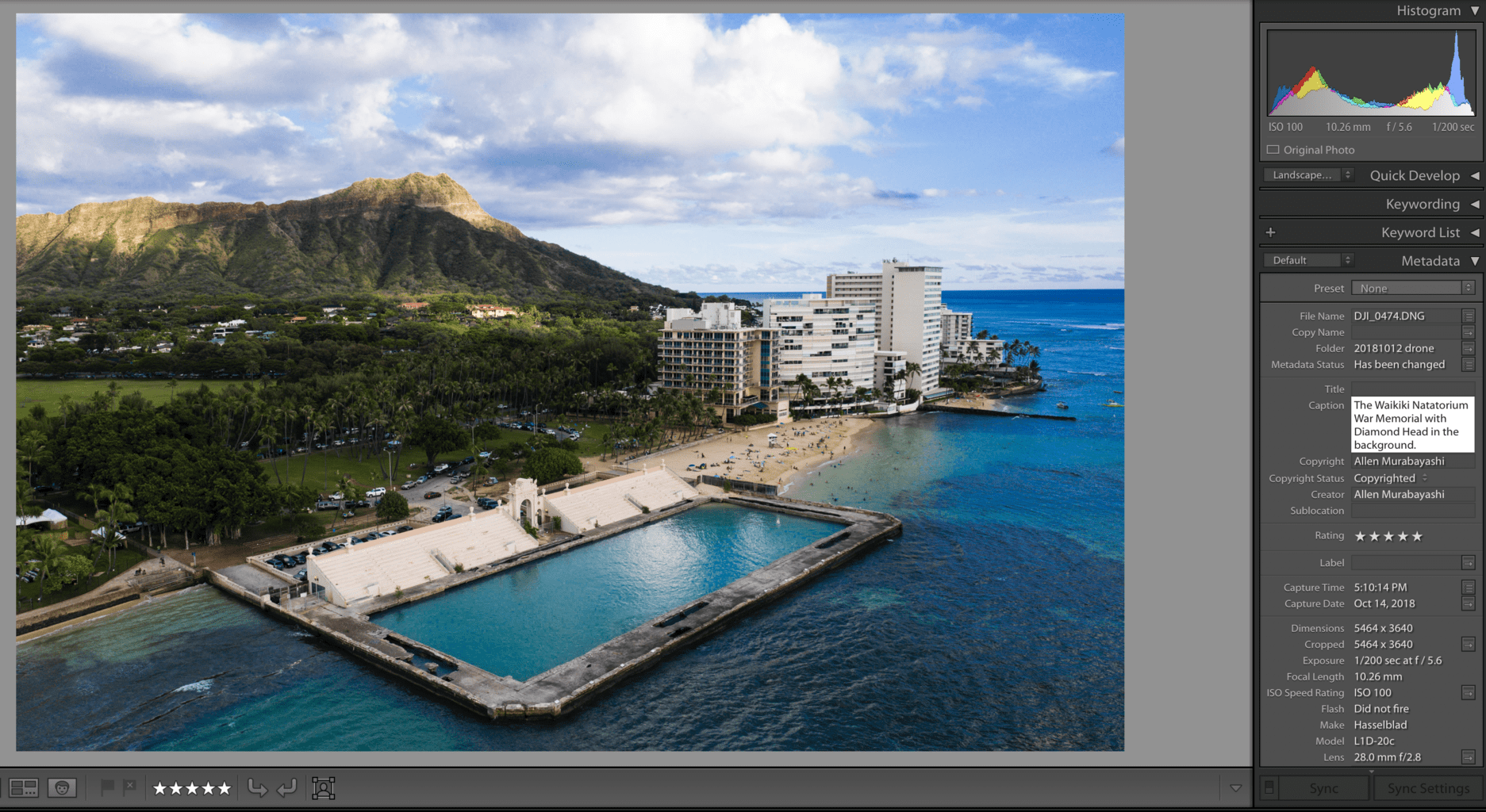
The inclusion of the ownership info behind the “Image Credit” link isn’t ideal. Professional photographers could legitimately argue that this information should be presented without having to click a link, but it’s worth noting that search engines service huge swaths of users, and therefore, what may seem obvious to a professional photographer is useless to another demographic.
But displaying the info and linking to an image that has the embedded metadata makes it more difficult for image thieves to claim they weren’t aware of the copyright. Willfully stripping metadata and/or a copyright notice from an image violates the Digital Millennium Copyright Act, which can lead to penalties of between $2,500 and $25,000 plus attorney fees.
Google captures about 92% of global searches, so its decision to include creator information isn’t trivial by any means. At the very least, it’s an acknowledgment of the intellectual property rights of the creative class, and represents a significant starting point for future development.

